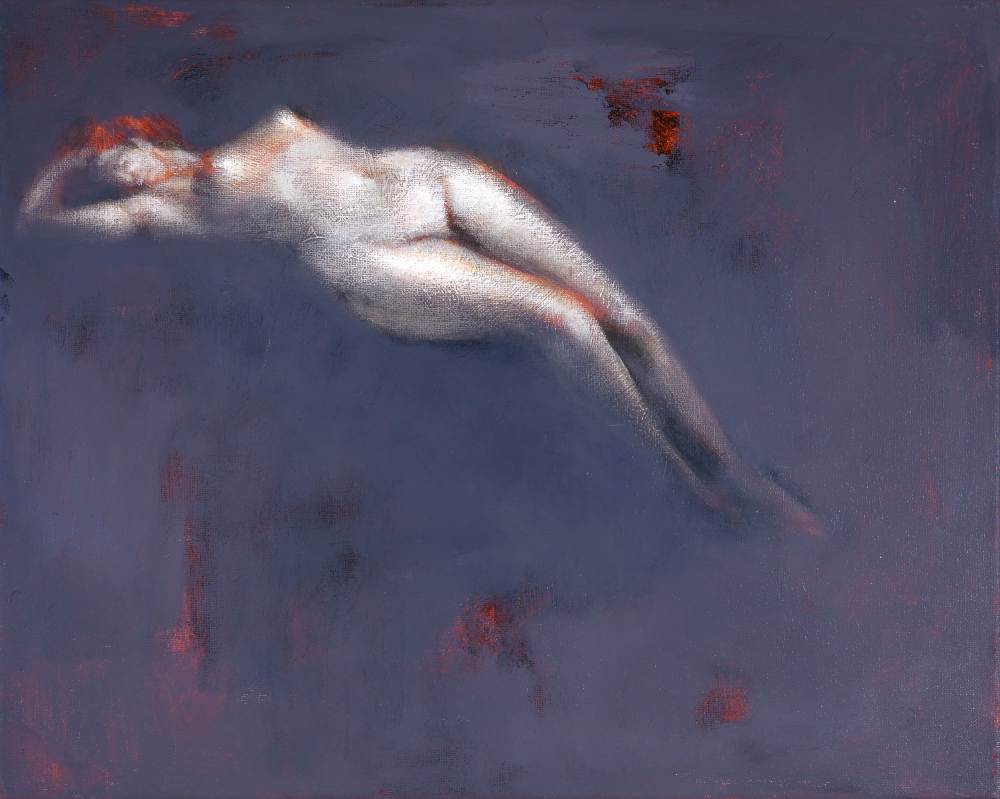With “Stochastic Idols”, Andreas Nicolaou returns to the Euripides Gallery presenting oils on canvas and drawings that deal with peculiar possible positions of the body in areas of emptiness.
The bodies of the works are borrowed from emblematic works of great masters of painting cut off from their natural environment that hover in the void where darkness – light undertakes to eliminate anything that would make these bodies familiar by reducing them to idols. Thus, the bodies seem to enjoy a levitation that verges on staticity. The absence of elements in the surrounding space is a key component for the liberation of the naked figure from any type of social or historical connotation.
As stated in his text for the report, Dr. Savvas Christodoulides, visual artist and professor at Frederick University in Nicosia, Nicolaou attempts – and to a large extent succeeds – to lead the figure into isolation in the way that Alberto Giacometti perceived and commented on it to Jean Genet. On the occasion of his paintings and designs with a central motif of man, he said: “This ability to isolate an object and to make its exclusively own, its only meanings flock to it, is only possible through the historical cancellation of the man who looks”.
Nicolaou attempts to remove the figure from elements that would make it a socio-historical manifest testimony (clothing, decoration, space, etc.) while excluding personal associations, recalls or projections that would give his motif other traits of identity. And whereas it used to consult on the moral stance or mission that set as its goal the respect for human nature and its framing of everything that exists, now it seems to be spurred on by metaphysical conceptions and the innumerable need to transcend humanity.
Written by
Zeta Tzioti
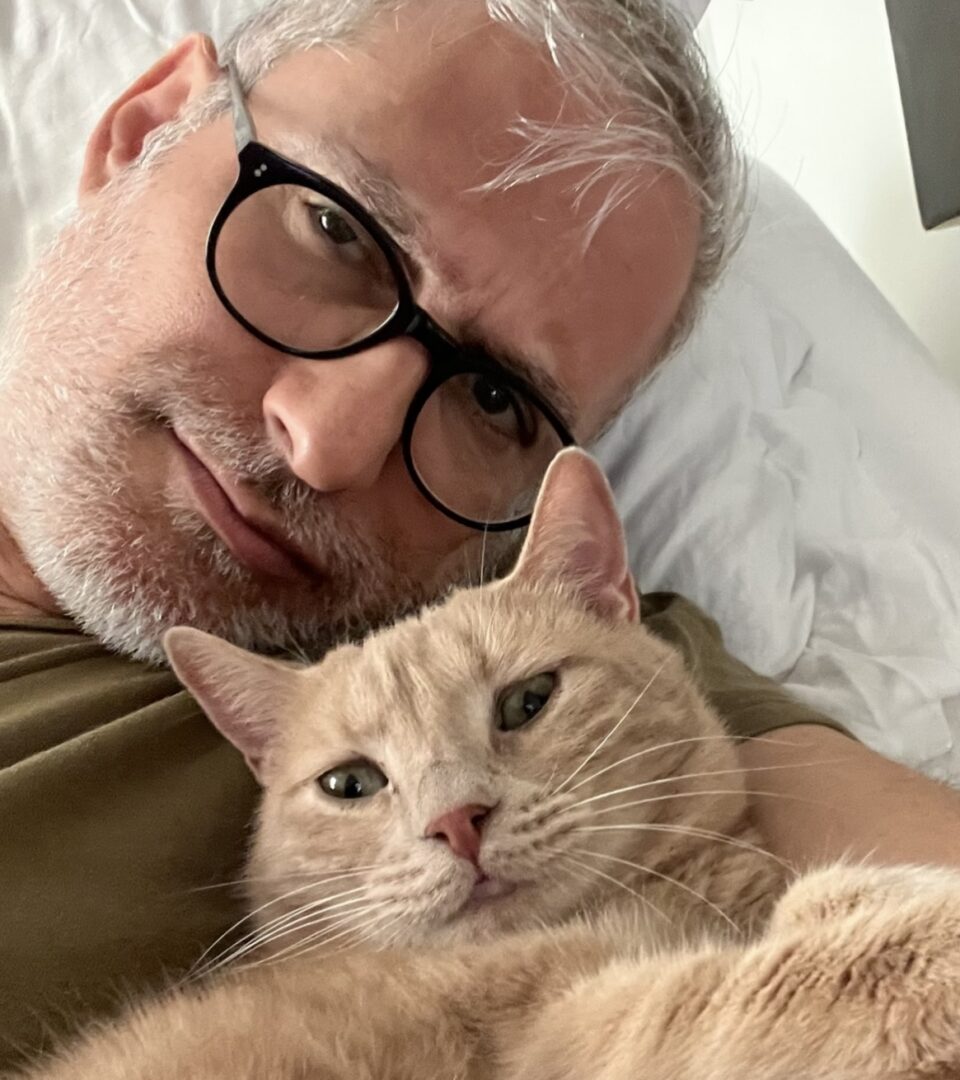
–
Andreas, what works do you present in your new solo exhibition?
– My new job It consists of mixed media works (acrylic and oil on canvas) and ink drawings on paper. The theme of the works is the male and female naked human body. They are bodies that are presented cut off from the surrounding space and from any social and historical connotation. These naked bodies hover autonomously on an almost colorless background.
-“Stochastic idols” Tell us about choosing the title of this section.
-The title of the exhibition is also the title of the text written for the exhibition by Dr. Savvas Christodoulides, visual artist and professor at Frederick University in Nicosia. It is a text in which Dr. Savvas Christodoulides studies, analyzes and even better, I would say, submerges these works so penetratingly that the title of the exhibition could not be different. It represents so much these lonely naked human bodies that, transcending their humanity, they are reduced to idols.
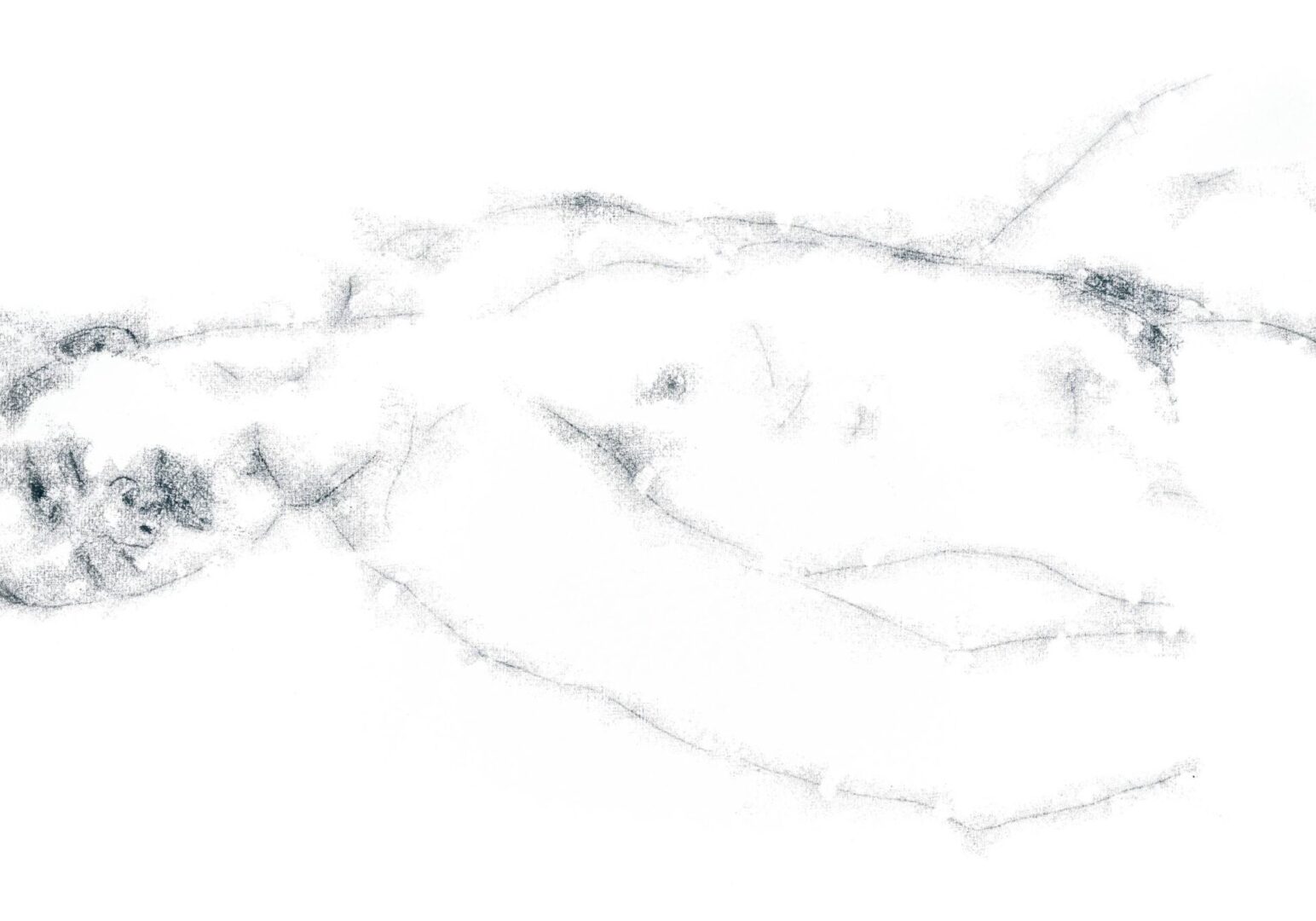
-You place the suspended images in fictitious spaces, empty of content. How were you inspired?
– The bodies of my works borrowed from emblematic works of great masters of painting cut off from their natural environment hover in the void where darkness – light undertakes to eliminate anything that would make these bodies familiar by reducing them to idols.
The dark silver background seems to have the roll that in Byzantine hagiographies has the golden background or halo that surrounds the holy figures, which cuts them off from anything mundane, except that in these works the loneliness of these bodies does not come from the “holiness” that distinguishes them from everything human but happens to emphasize mainly their human nature, sometimes miraculous but also sad at the same time.
I believe that this work expresses not only solitude but also concentration around ourselves, looking inside us
-Your works are dominated by silence and solitude. Were you affected by the days of alienation we recently went through?
-Solitude brings silence and silence brings solitude… The truth is that the works of the exhibition with the lonely figures were made in the midst of the pandemic when contact with the outside world was almost impossible. It really was a time when someone could lose himself or discover him, even look for him better. It could be a time of reflection around ourselves and our place in the world.
Yes, although many times my painting deals with solitude, not only in the paintings with the human body as the central theme but also in the paintings on the subject of spaces, landscapes and dark natures, I believe that this slavery expresses not only solitude but also concentration around ourselves, looking inside us.
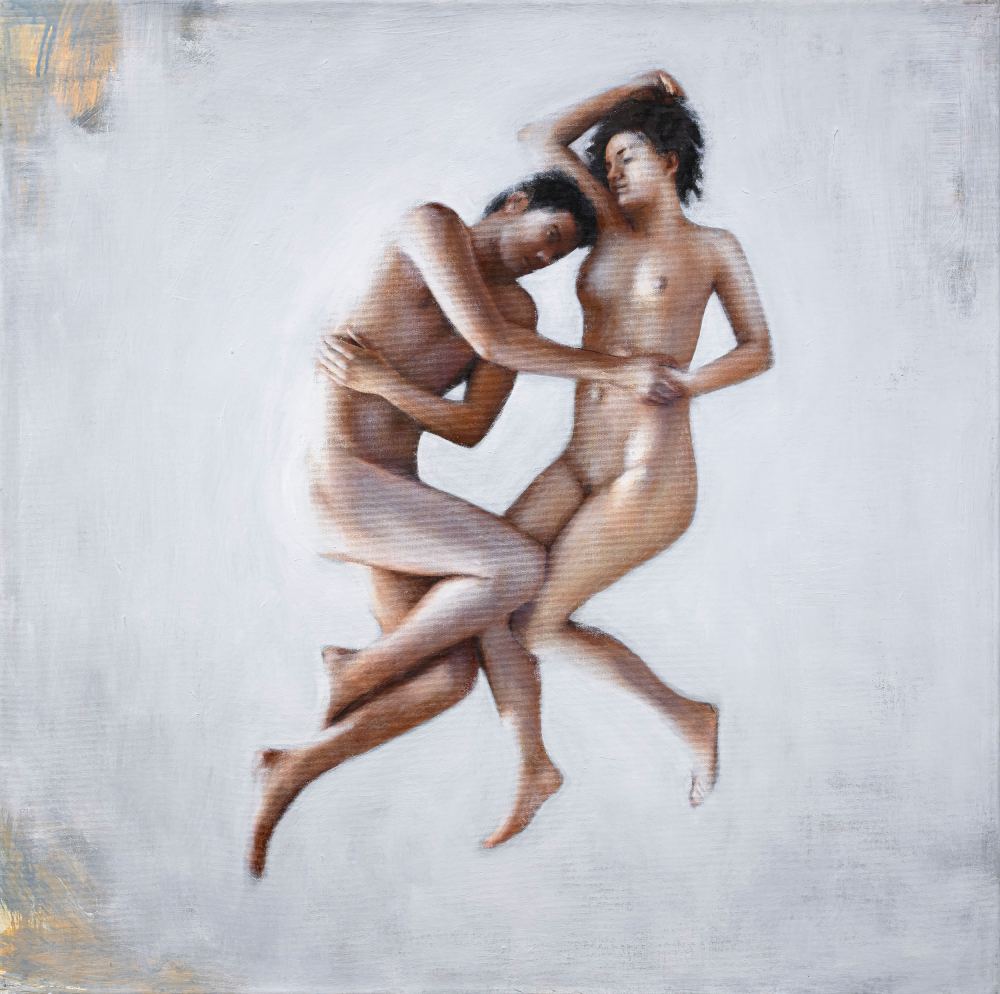
-In some you use a new technique. How did your experimentation come about?
-In the previous works the dark background that I used to emphasize the human body emerging from it becomes in this work almost silver – it is not even a color – it is dark but also bright. It is now like dust that the air removes from the curves of the bodies and exposes them. In the drawings presented in this report I use my own technique with ink on paper. It’s a technique that the whole drawing turns upside down without being sure exactly what has happened until you turn the paper. In this technique, although the random seems to play an important role, basically every pressure and every movement of the hand must be predicted in order to achieve the correct result and leave the right imprint in intensity.
It is a technique that I have been working on since the beginning of the pandemic and with various themes, such as bodies, portraits and the depiction of the Parthenon marbles in 150 drawings.
(In this series of works) man is stripped not only of every form of clothing, but also of every social – historical testimony and condition
-You capture the naked figure free from any type of social connotation. How do you approach nudity?
– Unlike previous series of my works, where the room of a house or the artist’s workshop, intimate spaces served to accommodate important and mysterious happenings, such as restorations and ascensions, now man is stripped not only of any form of clothing but also of every social – historical testimony and condition, so he manages to be led to spaces of empty content, fictitious and people sometimes seem to hover and swirl around themselves absorbed and immersed in their personal thoughts and reflections.
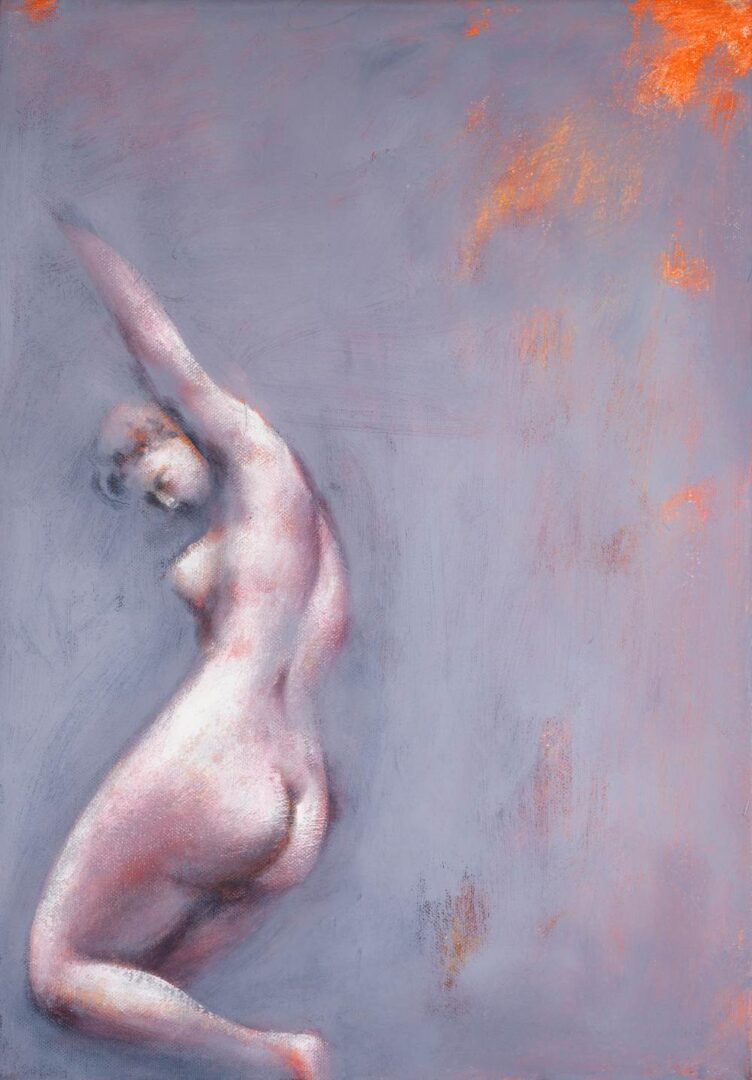
-You are one of the artists whose work is of particular interest in Greece and abroad. Have you noticed any increase in interest in the last year?
– After a golden age regarding the art trade, a great difficult period followed with the prolonged economic crisis, the crisis of the pandemic and lately the war with the energy crisis that it brings. All this made the artwork very difficult to market. It is not only the financial difficulty, it is that all these problems have caused people to sink into the pain of everyday life. To turn to art and engage in it, one needs a comfort in addition to financial and emotional. However, with all these difficult conditions there are people who want to acquire works of art. But the artwork must really win them over and become absolutely lovable.
It is very difficult for me to say if things are changing for the better because as I mentioned above, despite the problems and the difficulty that the art trade finds nowadays, things are in the end relative. It is all about the work of art and whether it will be able to speak and move the person who will stand before it. From my own experience I can definitely say that if this can be done, then nothing can stop a collector from making it his own.
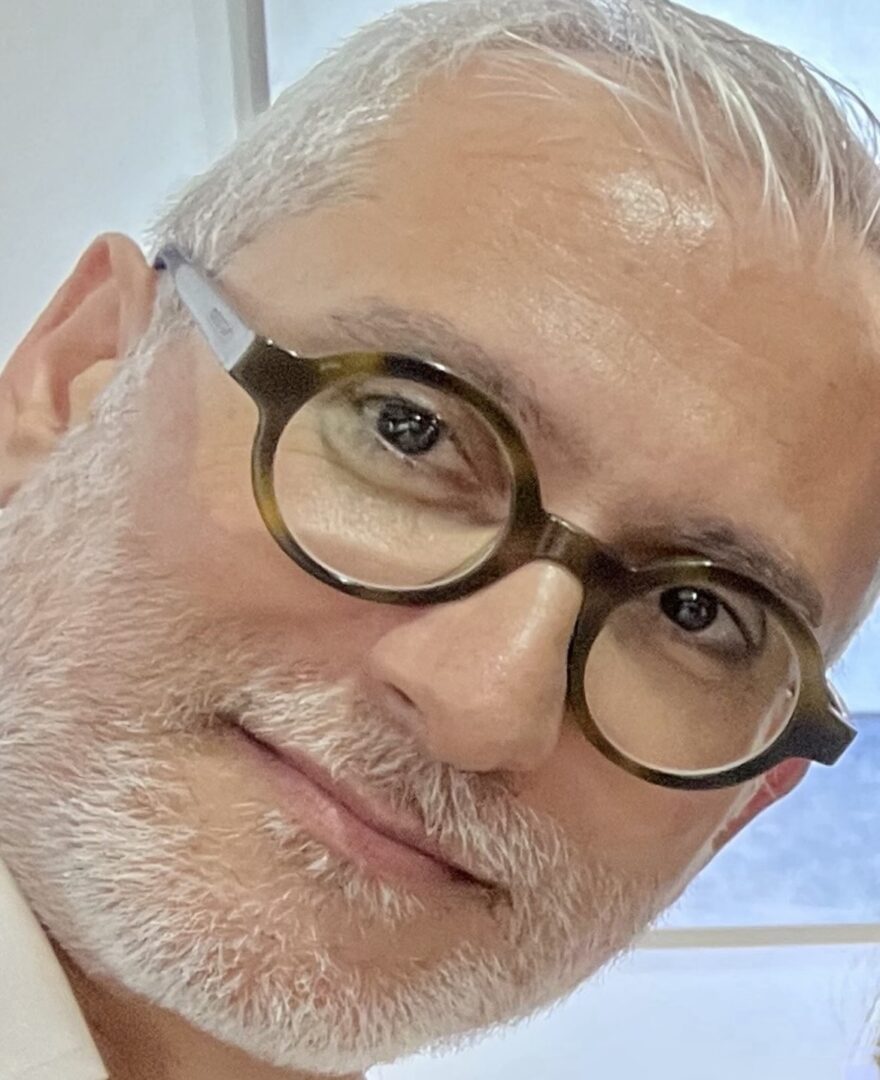
Exhibition Info
Andreas Nicolaou- “Stochastic Idols”
Evripides Art Gallery
Iraklitou 10 & Skoufa Kolonaki, Athens, 106 73
Duration of exposure
Thursday 9 February to Sunday 5 March 2023
Days & Hours of Operation
Tuesday, Thursday, Friday: 11.00 – 20.30
Wednesday: 11.00 -17.00
Saturday: 11.00 – 16.00
Sunday and Monday: closed.
The space qualifies for disabled access.



